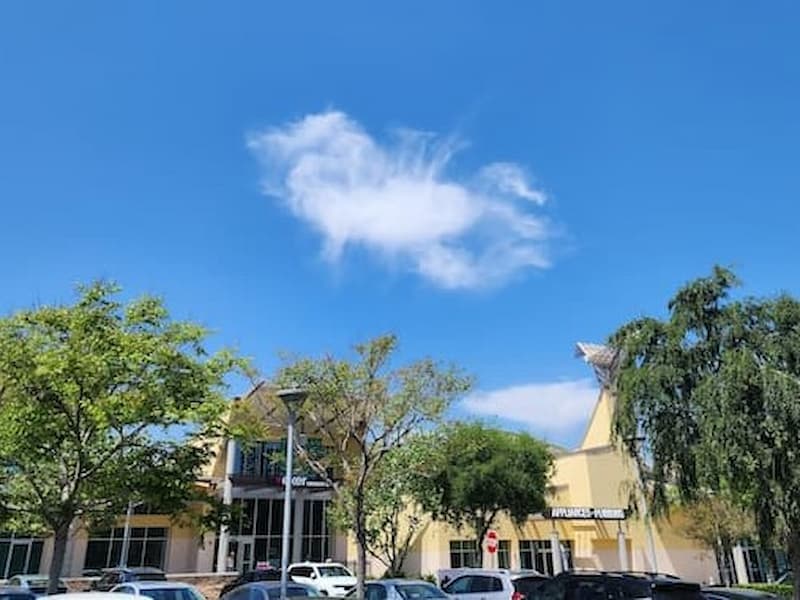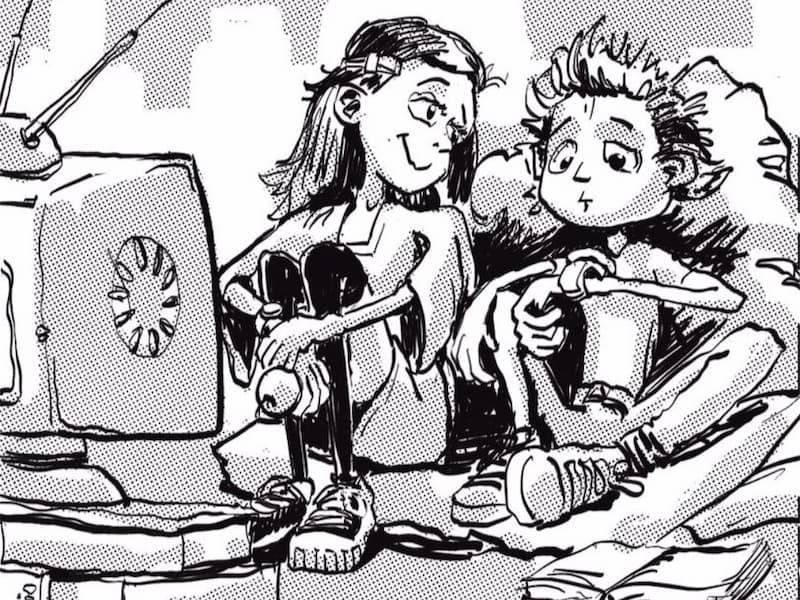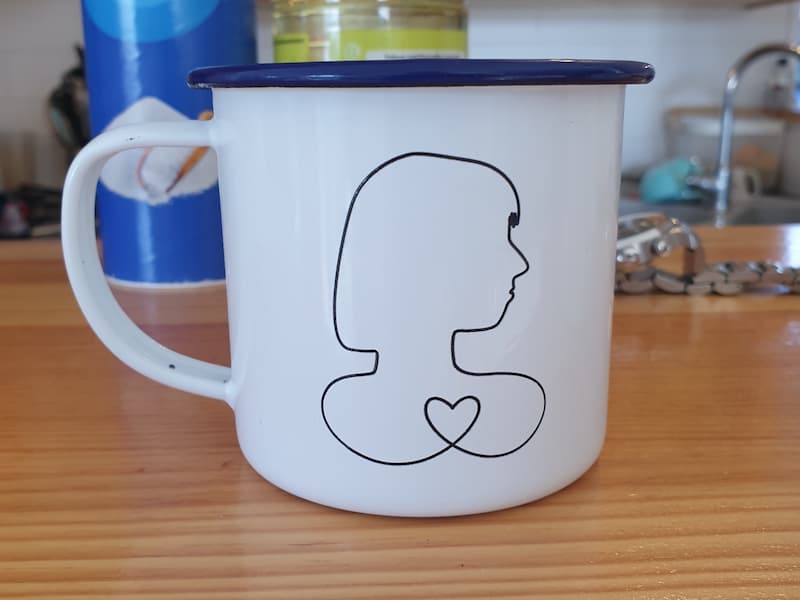Now there’s a picture! One line. For me, this particular line just became my favourite drawing of the year (so far!) What does that line convey? I can see a human; a female; a young woman. I can tell from that line – without any other information – that she is caucasian. From the way she has her hair and the way she is holding her head, I can tell something about her culture, her personality her energy. Her expression of the moment is clear, so I can see something of her emotions. As it happens, I have met that particular woman and I can recognise the individual, one in eight billion. From this one line! I also see a heart – the artist chose to include this symbol of love and life: and through that choice, my own cultural experience is drawn into the picture to consider a whole rack of additional layers describing intellect and fulfillment and the position of women in our culture. All within this single simple complex line.
That line means nothing. It has no intelligence, no depth, no memory, no logic and yet it communicates a world of meaning between the subject of the drawing, the artist and the viewer. How can I and anyone else who looks see all that in one line?
At a basic evolutionary level we are programmed to act as predator and prey. The need to decode opportunities for finding our next meal balanced against the threat of becoming someone else’s next meal is embedded deep in our heads and communicated instantly by hormones or neurotransmitters. The search for meaning is not only hardwired into the physical centre of our brains but exists in the very chemistry of our bodies.
And then surrounding that physical core of interpretation, reaction and chemistry are all the outer firmware structures of intellect, self-awareness, a sense of time and our place in it, and the ability to rationalise. That’s the stuff that humans have and others probably don’t have. Probably? Well, that’s another essay. But with all that going on – that magnificent interplay of core, chemistry and intellect set against the infinity of time – is it any surprise that everyone from ancient Buddhists to Kipling and Pratchett have felt the need to consider our origins and our destiny?

Why do we see scorpions in clouds? I just explained why. But the ‘meaning’ in a drawing is the other way around. I say drawing because line illustration is one artform that I enjoy most, but I could equally say sculpture, painting, cooking, photography, music, filmmaking or poetry.
Skottie Young describes himself as a cartoonist, but I have heard him describe what he does as pushing emotional buttons. Cartoons are a special kind of art. Our eyes see the world as nothing but three-dimensional surfaces reflecting coloured light. Cartoons transmit emotions through two-dimensional outlines drawn black on white.

(that was going to be a Skottie Young drawing but I couldn’t find the one I was looking for, so it’s one of mine)
Our eyes don’t even see outlines; in the real world they don’t exist. And yet Young with his outlines or Neil Gaiman through printed words can make us laugh or weep as we empathise with the life experience of characters who have never lived. Meaning in art follows the same pathway but in the opposite direction compared with seeing a scorpion in a cloud. Meaning in art is the transmission of emotion through symbols. So artists use ancient pathways carved by evolution to send the strongest of messages directly into the core of our ancient animal brains.
I don’t even know why cartoon outlines to do that. How does our brain interpret outlines as the surfaces they surround? But it works. Words work. Music and poetry work. Magic eh? When I was asked to teach drawing I explained to my class that with our pencils and paper we can only describe a single spectrum constrained by the white of the paper at one end and the darkish grey that a lead pencil makes at the other. And yet within that single spectrum we have the power to show depth and stability and personality and expression and individuality. Same with music. Twelve notes, and three or four ways of making air vibrate. Beethoven to the blues. Same with stories. Twenty-six letters. Dostoevsky to Dr Suess.
Sound and light are physically different. Sound is almost non-directional, comes in chords and is modulated by time. Light is directional, comes in single frequencies and is modulated by position. But either of them can convey a world of meaning as multilayered as the other. Either of them transmits information that will be interpreted both intellectually and emotionally carrying a whole universe of culture and depth.
Meaning is entangled in all this stuff. Not just information but its interpretation and any level of purpose that can be ascribed to whatever cultural or emotional reference you care to put on that.
So it’s a bit strange to me when I hear a philosopher such as my favourite of the moment Alex O’Connor saying he has difficulty finding meaning in life because he believes that the universe will die in a heat death implied by the second law of thermodynamics in some billions of years from now. For a start. It’s not clear that when you extrapolate the laws of physics that describe the world we can measure first-hand unto the edges of space and time that they still hold up. On the contrary, modern history teaches us the opposite. But secondly and more justifiably, you could say that that is a different meaning of the word ‘meaning.’ In a recent discussion with John Vervaeke, Alex discusses a spectrum running from information through knowledge and wisdom to meaning. Now of course you could say that philosophers do nothing but blow wind up their assholes, but I respect what they do. This is because they are the part of our culture that responds to the eternal questions of origin and destiny with what I believe is more richness than the alternative: Poring over an ancient book and shouting ‘Believe what people on my side believe or else die in flames.’
In his most recent podcast, Alex interviews Ben Thomas aka Sisyphus 55 about Nihilism and the Manosphere. The idea comes up that we don’t ask to be born. We are cast unwilling into the universe. and to find meaning in this, people use their gender as a rock to cling onto. For boys this naturally means masculine – and masculinity has a problem the story goes since feminism has castrated it. I like this discussion because these guys are intelligent and their talk is wise and non judgemental. They endear themselves to me by mentioning my current pet hate Jordan Peterson in his role as a rallying point for sad potentially violent men who don’t get what they feel they should be entitled to have. Peterson, they agree, perpetuates the miserable by giving these poor men the excuse that they are the victims of postmodern politics.
Then there is a chunk of the podcast about what would be good outlet for the aggression felt by disenfranchised men and ends with a look at nihilism and its links with depression. Somewhere in the middle there is good stuff about meaning and purpose. Both of the conversants are atheists or at least they lean toward the atheist end of the religious agnostic spectrum. And they both struggle to find meaning or purpose in their universe. They talk about hedonism as being perhaps the only reason why a nihilist would bother to get out of bed.
This is easy for me. My universe has no meaning in the sense that it doesn’t have an old man sitting on a cloud sprinkling ‘meaning’ on it from above. But my life has sparkling delicious rich meaning every day. I love. I am loved. I have produced four kids any of whom I would die for. I have also produced stuff – buildings, drawings, poems, essays, computer programs, websites. But all that is serious longterm stuff. That’s not what gets me out of bed.
What gets me out of bed (apart from my bladder) is the pleasure of making sense of everyday stuff. The anticipation of my interactions with people, and the mixed joys of creative production. This morning for example I literally leapt up with half-formed ideas of what I am writing now. I don’t believe that our universe has god-given purpose. But why should that fact make me depressed or even nihilistic? Consider the alternative – say the Old Testament concept that the purpose of life is to obey and worship a preening psychotic prima-donna deity! Why is that more meaningful?
And if one day the clouds parted and such a being gave us a sermon entitled “What the meaning of life actually is” I’m sure I wouldn’t be the only person who wondered why it (he? she?) had spent the last few milennia silently sitting on his hands while watching humans kill and torture each other over exactly that.
Human life simply cannot avoid having oodles of meaning. And then one day we die and our bodies become compost to grow food to feed other beings whose life will have their own different meaning. Or else they will become a forest growing on the remains of a civilisation that destroyed itself. Or perhaps our ashes will be crushed under the foundation of a server-city built by robots and inhabited by digital beings who are the next era of intelligent life in our universe.
Who cares? Not me. Isn’t that all meaning enough? We live in the world of yesterday’s science fiction. Fiction has become reality and it will do again. Art becomes life. That’s all the meaning we humans need. We have pictures in every cloud.

